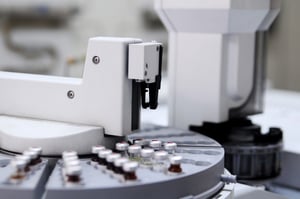The threat of hazardous chemicals
In recent years, modern consumers across the world are placing more emphasis on the production process of the apparel and textile products they come into close contact with. Many are concerned whether their purchases are products in an environment that is safe for the workers and the environment at large. With that, more companies are practicing responsible chemical management across their supply chains, particularly in manufacturing apparel and footwear industry.
The international textile industry uses over 2,000 different chemicals in more than 800,000 factories worldwide. Many of these are hazardous and can result in health problems and pollution. Some chemicals may remain in finished clothing, while others such as perfluorinated compounds (PFCs), which are carcinogenic and cause reproductive issues, can leak from factories and contaminate water systems.
Manufacturers can do their part by taking steps to eliminate toxic chemicals in the production of fashion and apparel. This will result in clothes and shoes that are safe to make, safe to wear, and safe for the world.
The growing DETOX campaign
The DETOX campaign was created in 2011 to encourage the practice of responsible chemical management in the apparel and footwear industries. Now, over 40 percent of international clothing and textile brands have made commitments to work towards elimination of hazardous chemicals in their supply chains.
When stakeholders in these markets knows that a particular brand genuinely cares about the environment, consumers and employees’ health, brand loyalty towards the brand will increase to a large extent as they develop positive attitudes towards it.
Apart from creating a safer and cleaner world, a commitment to DETOX campaign can easily lead to heightened positive publicity and help a business gain major advantage in these markets quickly. In addition, it can also improve employee morale and save on the bottom line, as safer chemicals require less investments to procure protective equipment and fees required to process and treat waste water.
With the same ultimate goal to eliminate the use of hazardous chemicals as DETOX campaign, 24 signatory brands, 59 value chain affiliates, and 15 associates across the globe, have come together to establish the ZDHC (Zero Discharge of Hazardous Chemicals) Foundation. Altogether, ZDHC now includes around one third of the worldwide fashion industry. It has created a Manufacturing Restricted Substances List (MRSL) to highlight the most hazardous substances for priority removal.
The ZDHC program has several parts. Perhaps the most important is training employees to understand responsible chemical management, including which chemicals are hazardous and how to remove and replace them. Companies learn to manage their inventories to avoid using chemicals which are deemed hazardous based on ZDHC’s MRSL.
Manufacturers must also have their waste water and sludge tested for successful hazardous chemical elimination. If a restricted chemical is detected, the manufacturer can then work to identify the root cause and find a solution to remove or replace the chemical.
How Vietnamese companies can take part
Vietnamese manufacturers who want to sell to these international brands must take action to illustrate the elimination of these hazardous chemicals usages during the production process. With this recognition, it will help them gain a major competitive advantage in the export business, particularly in the US and EU markets.
In Vietnam, manufacturers in the supply chain which are keen to participate in the DETOX campaign or be aligned to the ZDHC program can rely on TÜV Rheinland Vietnam. Currently, its flagship DETOX Control program is designed to support Vietnamese manufacturers on the path to responsible chemical management in their own terms, based on its vast experience gained from a decade in responsible chemical management in Vietnam. It covers all requirements of ZDHC program from MRSL testing, waste water & sludge testing, auditing to training and more.
“TÜV Rheinland’s chemical experts use their knowledge to help clients meet the demands expected of them,” says Dr. Nguyen Ba Hoai Anh, Director of TÜV Rheinland’s Vietnamese Softlines Laboratory in Ho Chi Minh City. “We enable manufacturers to confidently fulfill their data disclosure and reporting needs to comply with the requirements of brands they wish to work with.”
Apart from being the approved testing laboratory for ZDHC program, TÜV Rheinland Vietnam has progressively rolled out ZDHC-accredited training courses since October 2017. This is targeted to help companies raise their competencies to eliminate hazardous substances. Key topics include chemical management systems, responsible chemical inventory management, proper handling of chemicals, and effective treatment methods. To date, more than 50 employees of Vietnamese factories have been awarded certificates for completing these courses.
Brands around the world are following the DETOX campaign to create a sustainable future in the apparel and textile industry. Vietnamese manufacturers who wish to stay relevant should be on board as soon as possible to stay ahead of the competition.



